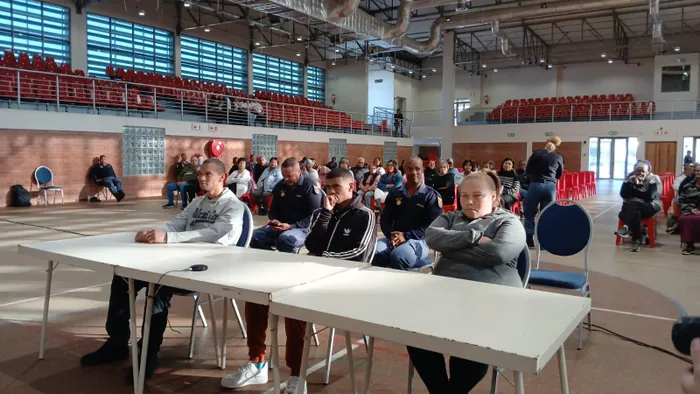
Laurentia Lombaard was a Section 204 witness in the Joshlin Smith Trial.
Image: Armand Hough/Independent Newspapers
Laurentia Lombaard, the key witness in the Joshlin Smith trial, has this week asked the court to grant her indemnity following her explosive testimonies that led to the guilty conviction of three people.
The highly publicised trial made international headlines.
The six-year-old green-eyed girl disappeared from Saldanha Bay on February 19, 2024. The search for her continues to date.
Joshlin's mother, Kelly Smith, received a life sentence for her role in the child's disappearance.
Kelly, her boyfriend Jacquen ‘Boeta’ Appollis, and Steveno van Rhyn each received life sentences for trafficking in persons and 10 years for kidnapping.
It was Lombaard's startling testimony that Kelly had received R20,000 to sell Joshlin to a sangoma that sent shockwaves through the community.
But despite her testimony, Lombaard, who became a Section 204 witness for the State, was not automatically released from facing criminal charges.
Lombaard was initially arrested and charged alongside the trio.
In October 2024, Lombaard decided to turn State witness.
But what is a Section 204 witness?
Speaking to IOL, Associate Lecturer in the Department of Criminal Justice and Procedure at the Law Faculty of the University of the Western Cape (UWC), Tlholo Lehlekiso, answers the questions.

Jacquen Appollis, Steveno van Rhyn and Kelly Smith were sentenced in May.
Image: Robin-Lee Francke/IOL
What is a Section 204 witness?
“A Section 204 witness is someone who took part in a crime but is called by the State to testify against others involved. In giving that testimony, they may have to admit their own role in the offence. In return, if the court finds that they answered all questions frankly and honestly, they can be granted indemnity, meaning that they cannot be prosecuted for that specific offence,” Lehlekiso said.
She said Section 204 of the Criminal Procedure Act exists to make it possible for the State to use 'insider' evidence from accomplices to secure convictions against other offenders.
Lehlekiso said the courts have demonstrated it is essentially a trade-off: the State gets crucial testimony and the witness gets protection from prosecution, provided that the witness tells the truth.
When would the State opt for a Section 204 witness?
“The State would opt to use this mechanism when an accomplice’s inside knowledge is crucial to proving the case, typically in organised crime, corruption, or gang-related cases. Sometimes, the only way to expose the full picture of a crime is to have someone who was a part of the crime explain what happened.
“Before questioning begins, the prosecutor must tell the court that the witness will have to give self-incriminating answers and must specify the offence involved. The court then explains the witness’s obligations and rights, including that the witness must answer all questions honestly and that truthful testimony can lead to indemnity,” Lehlekiso said.
What outcomes are there usually for Section 204 witnesses?
Lehlekiso said there are two main possible outcomes:
- Granted indemnity: “At the end of the trial (courts have found that it is irregular to give the indemnity before the end of the case), the court decides whether the witness’s evidence was frank, honest, and complete. If so, the witness is discharged from prosecution for the offence in question,” she said.
- No indemnity: “If the court believes the witness lied, withheld information, or gave unsatisfactory evidence, the protection falls away and they can be prosecuted.”
Are most Section 204 witnesses granted indemnity?
“Most are granted indemnity because prosecutors typically choose witnesses they believe will cooperate and tell the truth. But it’s not automatic: the decision to grant indemnity rests with the court after hearing all the evidence,” Lehlekiso said.
She said, the law is clear: a Section 204 witness is not expected to tailor evidence to suit the State. They are only expected to give frank and honest answers.
“Early promises of indemnity are discouraged because they can prejudice the trial. Importantly, the protection is earned through credibility and not given as a reward for helping the prosecution’s case,” Lehlekiso added.
It is also important to note that Section 204 and Section 105A of the Criminal Procedure Act (deals with plea and sentence agreements) involve potentially implicating individuals. Section 204 specifically focuses on securing testimony through indemnity, while Section 105A focuses on plea bargains.
Judge Nathan Erasmus is expected to deliver judgment soon.
robin.francke@iol.co.za
IOL